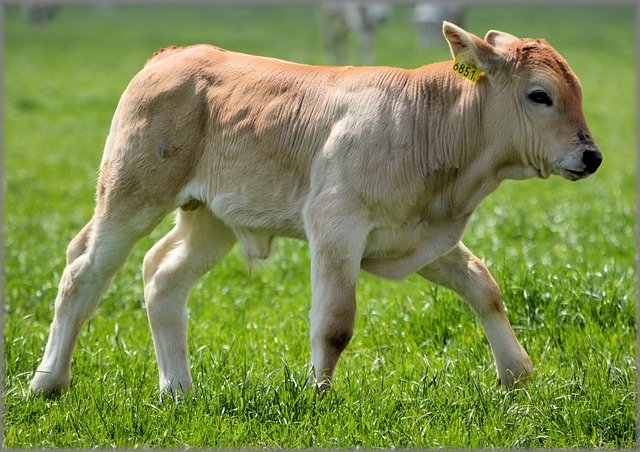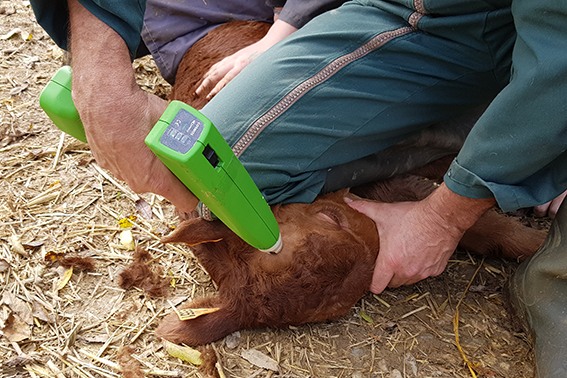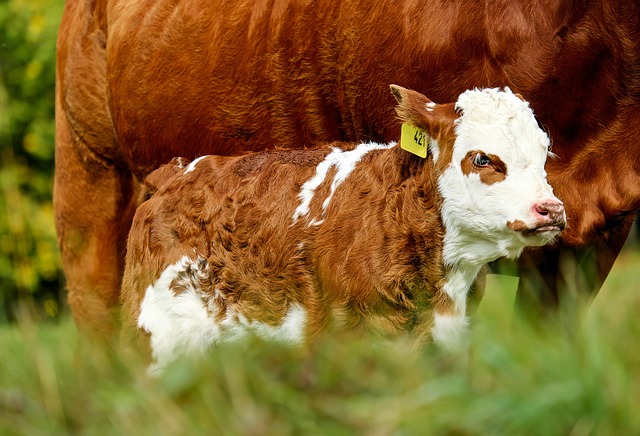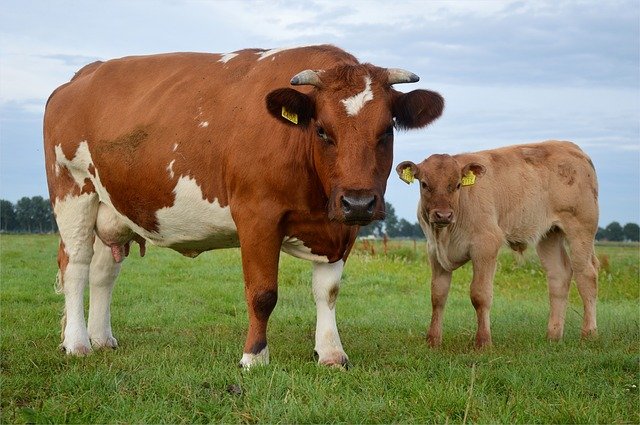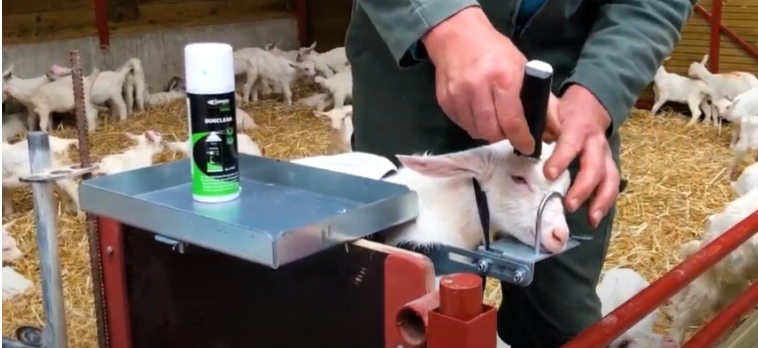
There are two methods of dehorning calves: chemical or thermal. The chemical method is to be proscribed, as it is painful and traumatic for the animal. For thermal dehorning, using a power or gas tool, the calf must be anaesthetised before dehorning and then receive another treatment to eliminate the pain.
Horn growth
Horns are bony outgrowths that grow after the calf is born. When the animal reaches about two months of age, they begin to attach to the frontal bone of the skull. A cavity develops under the bud of the horn and extends into the horn in formation. The dehorning of the calves stops this growth.
It is fundamental to perform this operation when the calf is very young, from the third week onwards, to avoid pain and stress.
The importance of anaesthesia for animal welfare
The dehorning of calves using heat creates a burn. The pain is therefore intense and persists for a few hours after the operation. Prior anaesthesia completely eliminates this pain. Local anaesthesia should then be combined with a sedative and an analgesic.
The nerve that crosses the horn is what gives it its sensitivity. The base of this nerve lies behind the eye and runs along a bony protrusion of the skull. Anaesthesia must be applied to the vein that is associated with the nerve. There are two horns, so two parts to anesthetize.
Because the calf did not suffer, it also does not experience any stress or physical or behavioural side effects.
Anesthetics and analgesics
To avoid pain, you can combine several anesthetic products. Don’t forget to disinfect well before and after the procedure. When anaesthetizing, give the product time to work before beginning the procedure.
The administration of a local anaesthetic intended for a short duration lasts between 1 and 3 hours. It is strongly advised to combine this first treatment with a sedative that will produce an analgesia that will last several hours. This ensures that the calf does not suffer immediately after the operation.
To prolong this pain treatment, treatment with a non-steroidal anti-inflammatory drug should be further reinforced. In the days that follow, you can use painkillers to ensure that the calf does not feel pain at any time and does not have any bad memories of its dehorning.
Precautions to be taken when dehorning calves
It is imperative that you clip the part of the head on which the thermal debarker will rest. You can use a clipper or a hair remover if you use one for your dairy cows. The hair is burned by the heat which does not give off a flame; a painless process for the calf.
Clipping allows you to see what you’re doing better, but also helps you avoid the risk of infection. If you use a hair remover, you eliminate bacteria and germs around the area of the operation.
On the other hand, it is important that the calf does not move while you are dehorning. You can use a restraint cage for this. This leaves your hands free to work and some cages have a platform that allows you to put down your work instruments. The restraining cage blocks the animal at the back and front.
In any case, you must look after the calf during the following days. There is a risk of infection, especially if it is hot and flies land on the wound. Disinfect every day if you have any doubts.


